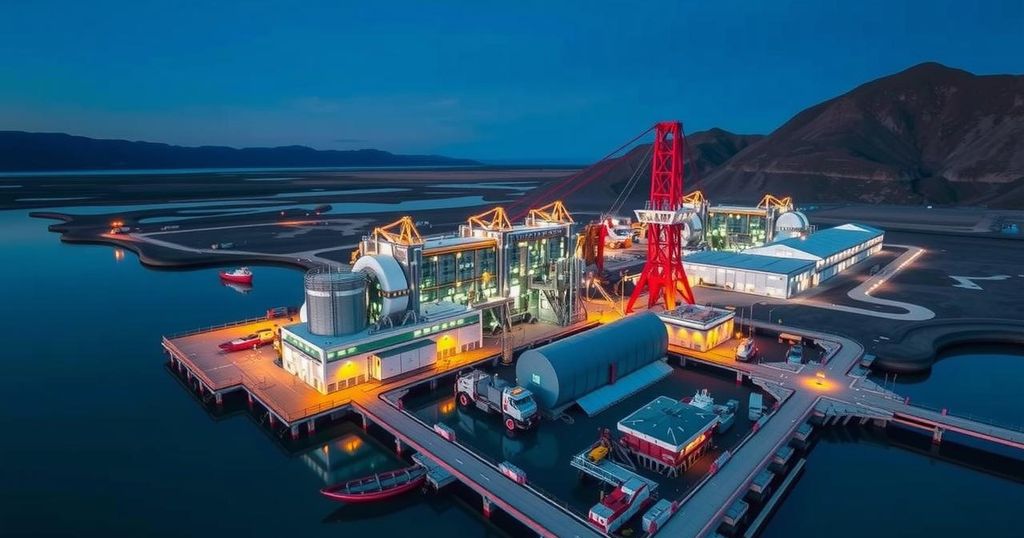Bolivia Signs $1 Billion Agreement with China for Lithium Production Plants

Bolivia has signed a $1 billion agreement with China’s CBC to build two lithium carbonate plants in Uyuni. One plant will have a capacity of 10,000 tons and the other 25,000 tons annually. This deal, alongside a prior agreement with Russia’s Uranium One Group, aims to establish Bolivia as a key player in the lithium market, pending parliamentary approval.
Bolivia has officially entered into a significant agreement with China’s CBC, a subsidiary of the leading lithium battery manufacturer CATL, to construct two lithium carbonate production plants at an estimated cost of $1 billion. The state-run Bolivia Lithium Deposits (YLB) announced that one plant will produce 10,000 tons annually while the other is expected to yield 25,000 tons, both located in the extensive Uyuni salt flats, home to some of the world’s largest lithium reserves. President Luis Arce emphasized the transformative potential of this partnership, suggesting that it will position Bolivia as a vital player in the global lithium market. This agreement follows a prior arrangement with Russia’s Uranium One Group worth $970 million, aimed at lithium extraction, pending legislative approval from Bolivia’s parliament. Furthermore, discussions are reportedly in progress with China’s Citic Guoan Group for an additional contract, highlighting Bolivia’s commitment to maximizing its lithium potential.
Bolivia’s lithium reserves have garnered international interest due to the growing demand for lithium-ion batteries used in electric vehicles and electronics. Dubbed “white gold,” lithium has become a critical resource in the global transition towards renewable energy and sustainable transportation. The Uyuni salt flats are recognized for their extensive lithium deposits, and Bolivia aims to leverage its resources to enhance its economic standing and influence on the world stage. The significance of securing partnerships with major industry players like CATL and Uranium One exemplifies Bolivia’s strategic approach to developing its lithium sector.
In conclusion, Bolivia’s recent $1 billion agreement with China to establish lithium production facilities marks a crucial step in the country’s goal to capitalize on its vast lithium resources and become a significant player in the global market. As Bolivia engages with international partners, these developments are poised to reshape the country’s economic landscape, provided that necessary legislative approvals are obtained. Continued negotiations with other enterprises indicate a robust pursuit of opportunities within the burgeoning lithium industry.
Original Source: jordantimes.com




